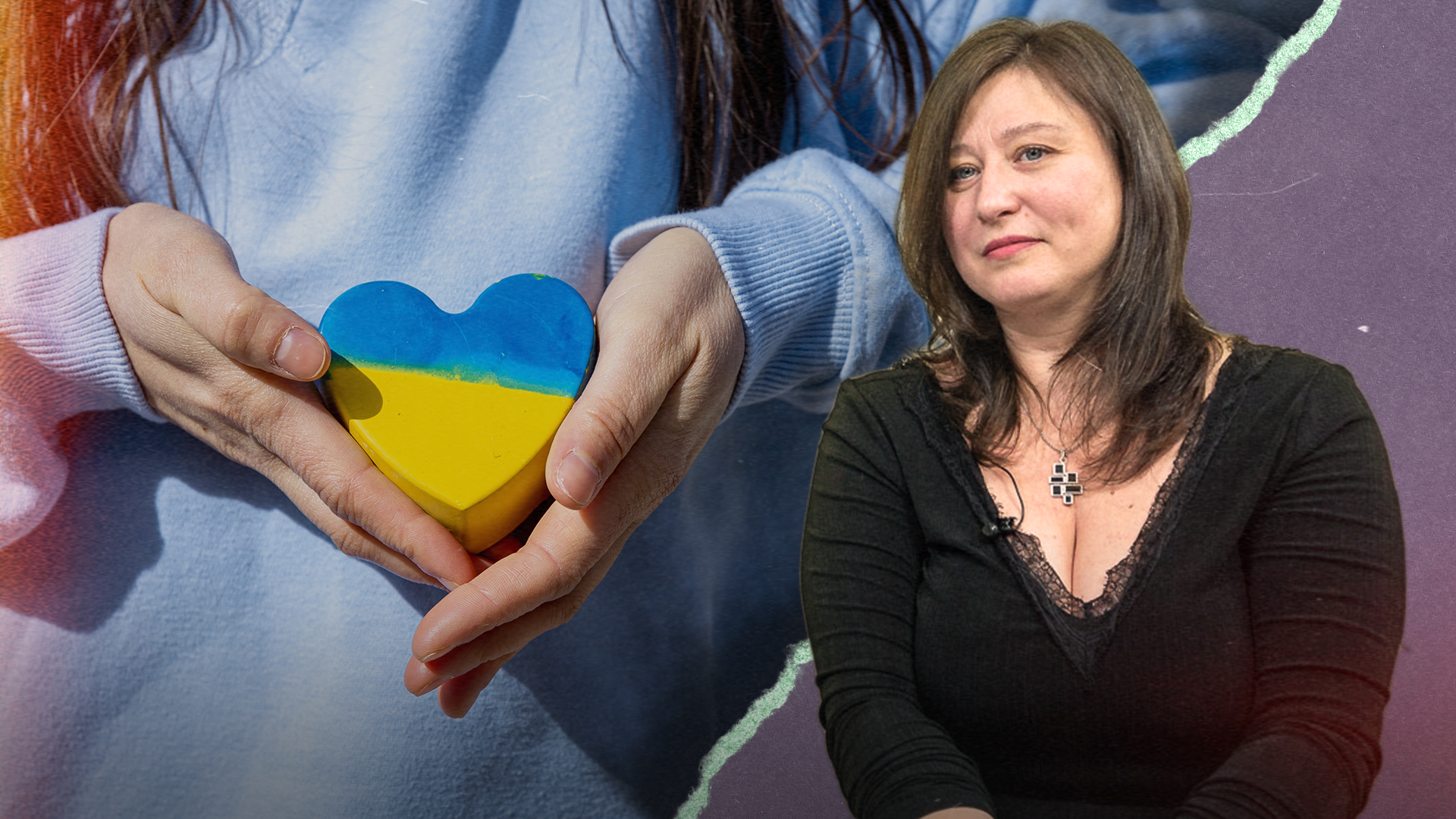
There is a demand for Ukraine and Ukrainians to be recognized, and every award wants to find a Ukrainian and award them for their heroic resistance to the Ukrainian people. Is this a temporary interest in Ukraine, an interest until the end of the war? Is it an interest with a taste of mercy or a recognition of what has long been in the shadow of Russian culture? Should we take a chance?
How long this interest will last depends on us and on how we use it. Will there be any state strategy on how to use it? Indeed such attention to Ukrainian culture, particularly abroad, has been actualized and intensified because of the war. But the war is the central theme through which Ukrainian literature becomes visible. These are the humanitarian consequences of the war. However, the war still imposes a framework that limits how this literature can be represented and noticed.
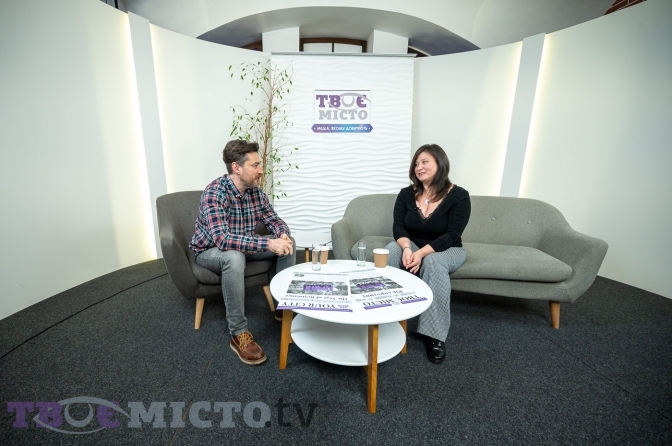
This attention will not last forever, so we have to do as much as possible. There are many areas. In particular, the spread of their narratives, that is, the denial of Russian narrow that exist outside, that talk about Ukraine, have formed a biased, even distorted attitude towards Ukraine. We are dealing with it when we go out. Over the year, I have had many such situations in different countries. I have had to deny, challenge, explain, and say how much of this is, for example, an imperial vision and how much it imposed.
What does this imperial vision look like?
Nowadays, there are various steps, for example, changing the inscriptions in national museums and galleries around where lebel Ukrainian artists as Russian. Where Ukrainian scientists are labeled as Soviet at best, and if they were born in the Russian Empire at that time, then they will be Russian. And there are many examples of such distorted perceptions. For example, if you add «Ancient Rus» to the term «Kyivan Rus» – a notion used in Russian medieval studies – it means that «Ancient Rus» neglects the fact that this Rus was Kyivan. And through such approaches and filters, Ukrainian culture was presented outside, preventing the world from seeing it as Ukrainian. It looks like this: someone approaches you with a ready-made reading matrix and says: «We know Russian culture well. We don’t know Ukrainian culture. Could you please tell us who your Dostoevsky is?» You are forced not to talk about your culture but to look for some correspondence in it. They don’t ask: «Who is your Hugo?» or something else, although this also does not sound quite correct. But here it is outrageous.
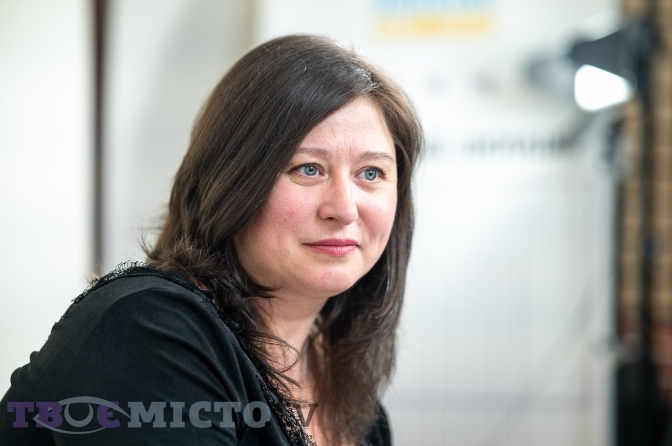
So we are still tied to the «mysterious Russian soul,» according to Dostoevsky?
Not only to the soul. We are often defined, outlined, and measured by Russian culture. We actively resist and fight against the matrix, which we read as the imperial filter through. It is probably one of the most significant features. But these are not only narratives but also opportunities. I was horrified when I realized last May that there are only 2.5 Ukrainian studies professors in the US for every state. But almost every Western university has Slavic studies, which is essentially Russian studies. It is also a specific thing.
There are entire institutes of Russian literature.
There are institutes of Russian and Oriental studies, for example. A specific perspective creates a context and educates scholars who will look in a particular direction. Based on the awakening of interest in it, Ukraine should take care of Ukrainian studies, which, through events, educate people interested in Ukrainian culture, who will know the Ukrainian language and consciously engage in Ukrainian studies. Without it, the interest will disappear over time. We will reach a situation where we will no longer talk about the war as often, and everyone will get bored with Ukrainian culture because it will become a kind of supplement to the topic of the war. Such risks exist. It applies to all spheres of life.
Go to any large bookstore in any country in the world. Until recently, we didn’t have a Ukrainian shelf or even a trick whereby an unprepared reader could find a specific Ukrainian book among this massive number of books. You could count these books on one hand. And now there is also an amusing process because this Andriy Kurkov Prize significantly shows how the attitude towards the literature read is changing. It is not only literature that will be marked by the war, by a title that will have a hot topic, will be about the war, and will be through the prism of the war. It will simply be attention to Ukrainian literature, which will have a good translation and be presented and appreciated as good literature. That’s when it will be a sign that we noticed. There is a sincere interest in us, not an opportunistic one. Because this moment of opportunism is working to a certain extent, but how long will it last? Because of the awarding of the film about Navalny, other prizes and honors that now exist for Russian artists are also bells and whistles that tell us that we are losing this attention.
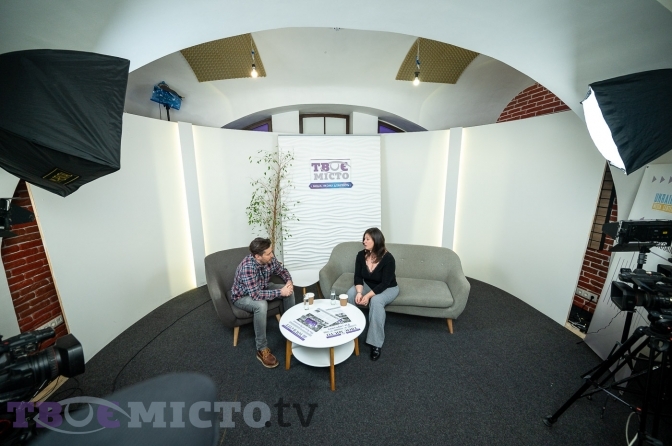
There is a myth about the «great Russian culture,» which is a bit of a mystery to me. Why this attitude to Russian writers, to Dostoevsky and Tolstoy? I don’t fully understand the fascination with them.
It is a complicated problem that needs to be analyzed comprehensively – not only in the literature context but also in the context of literature ideas formed outside. If there hadn’t been all these Russian and Slavic scholars, I think the idea of Dostoevsky has not established.
I’m sure that 95% of people in the West who mention Dostoevsky when looking for some context for Ukrainian culture or in stories about great Russian culture have not read any of his books. He is a complex writer and writes hard. The moral imperatives in his novels are questionable, to put it mildly... We have to show our good literature. But, as Volodymyr Viatrovych said, for most Ukrainians, the only history book they will read to the end will be a school history textbook, so its content is significant. I think this is even more true of Ukrainian literature. The Ukrainian literature program is essential. Each author has important works and those left over from the Soviet textbooks. I’m not talking about those authors who didn’t exist, who also need to be correctly «highlighted.» What about them? We rarely see those textbooks, and they may be in trouble. Ostap Ukrainets recently posted a certain G. Nudka. I don’t know who he is philologists know.
No, he is a good philologist.
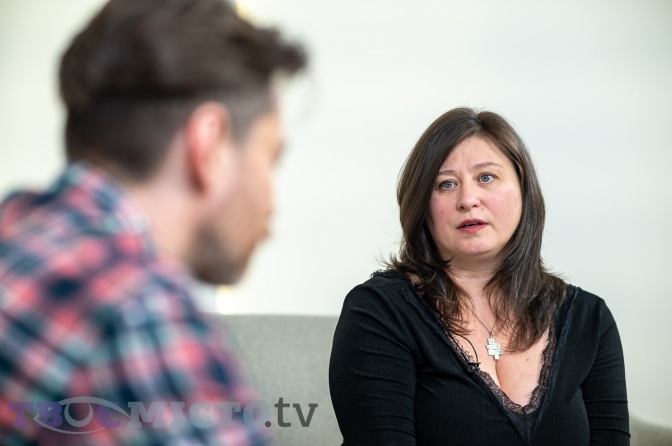
Fine, a very good philologist, G. Nudzha, says that the Ukrainian language is a nightingale whatever. You read this and think: «My God! How can children love this?»
It is also a complicated topic. We don’t have simple themes nowadays. All of them are complex. At least, I see them that way. As a person who studies the seventeenth and eighteenth centuries, I can say that if there were no simple two-class parochial schools in every church where the clerk taught reading, writing, and singing, there would have been no development of culture, no Ukrainian Baroque, no development of later culture and self-awareness that nourished the entire Ukrainian culture and allowed it to survive to this day. Metropolitan Sheptytsky was also interested in school. The school educates, and the school lays the foundation of knowledge. What is the school like, to a large extent, will be the society. That is, what we lay down in this program, what it looks like, we reap later. The role of the textbook in this is crucial. It is difficult to say how much time Ukrainian education had to develop well. When Tabachnyk harmfully reforms it, or someone else tries to reorganize it in some other way. And as a result of all these reforms and other ill-conceived actions, we have what we have.
The complexity of all kinds of complex changes is also related to the fact that Ukraine is a large country with very different historical experiences in various parts. It is difficult to change this whole «big machine.» If our media space is not Ukrainian, it does not work for Ukrainian culture and does not promote certain narratives. For example, I don’t have a TV at home. I watch everything on YouTube. But my parents have good Polish TV reception. I watch their programs, even on local television in Lublin. These programs contain a lot of enlightening and educational elements. They broadcast in the usual way, and they are not labeled. It’s just a morning broadcast from which you can find information about literature, some crucial national things, what to read, and watch, what not to forget, and whom to remember that day. We do not have this moment.
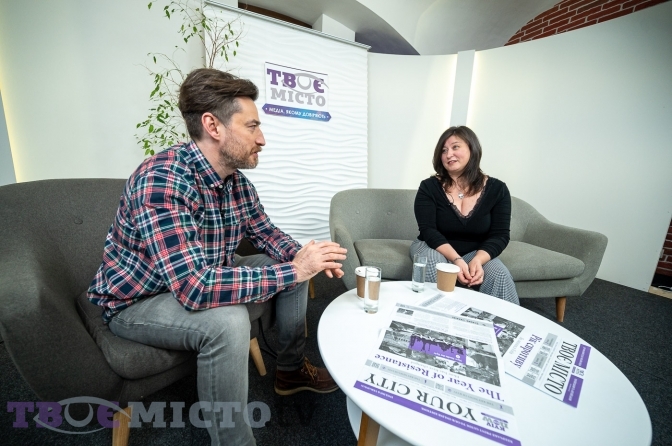
Where does it come from? Is the Ministry of Culture behind it, or a personal initiative of the editors?
We have to do with cultural and information policy. And also the awareness that you influence it, and it depends on you. We have several things that we cannot take care of. We cannot create a textbook in one day. It is significant to understand that textbooks win tenders. These are large sums of money. These are specific interests. And we need to discuss the fact that it must be national interests.
We define this as a war for identity, which the Russians are trying to recognize as their own. They mostly borrowed it from Ukrainians. It means that after the status of a nuclear weapon state or joining NATO. Nothing is more important than basic things that emphasize Ukrainian identity and indicates where it begins and ends. And this is primarily a school curriculum. So maybe then we should gather some of the best people, even Hryhoriy Nudha, whom I don’t know, will be there?
Hryhorii Antonovych Nudha is a good researcher who has done much for Ukrainian literary studies.
Recently, I was on air saying that I listened to 100 songs on YouTube, and somewhere in the end, all sorts of Russian Instagrams were already appearing. But I said that it’s probably mainly children who listen to this, and one of the viewers took this moment and said: «Oh, please, the presenter says they listen to Russian Instagrammers. Well, they’re children, so it’s normal.» And then a tirade began about how you don’t give your children drugs in the morning instead of breakfast. It’s a toxic story, but it’s about how always can be misinterpreted a quote.
As one of my teachers once said, no matter what you tell students, they will get the stupidest thing out of their entire conversation and keep it. It is how selection works. Why did I mention mass culture and all these media are supposed to nurture and take care of it? Because in this way we can take care of the general level, raise it. Of course, we can develop a science that selects individuals and realize these individuals. But it is necessary to work with mass culture, with mass consciousness at this most basic level, because otherwise, someone else will work with it. It never happens that no one works with it. If we don’t work with it, then Instagram and Russian cinema work with it seems to have «nothing wrong with it» because it puts specific messages in your head that you do not fix yourself. It is like a Soviet film. Everything is fine, or even not a Soviet movie anymore. But just some kind of innocent film from which it is clear that the hero is going to the capital, and this capital is necessarily Moscow. There are a lot of such movies. I can analyze several films to see how to form this and where we uncritically absorb it, such as the animated series about Masha.
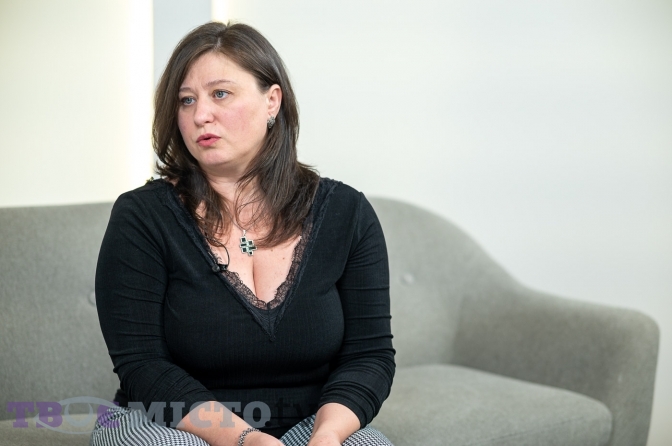
And the British banned it a long time ago.
Because these are clear messages that go through mass culture and stay there, so if you want to fight someone, you start fighting and start from the sphere of mass culture. What has been happening in our space over the past 20 years is not more than occupation through the media, mass culture, TV series, narratives, and whatever.
We have a strange situation: many Russified Ukrainians, or those not interested in Ukrainian culture today, feel very much involved – they are switching to Ukrainian, at least on social media. It happens to those who came to power almost three years ago. They also have great self-awareness. These are good processes, but they disregard everything that came before us. There is a narrative, and I do not know if you feel it. Because I am very much of the opinion that it doesn’t matter what happened before the war, before 2019, and even more so before 1991. We have Kyivan Rus, Taras Shevchenko was «running around» somewhere, and here we are immediately. They turn on Bayraktar Radio, and it is on.
Before our conversation, we mentioned the thickness of this cultural layer. It is our great misfortune that for many centuries of struggle against Russia, Russian national policy, imperial and then Soviet, was aimed at this destruction. In other words, this core layer of culture thinned out and removed its tops. After the Executed Renaissance, we lost the cream of our culture. After the Holodomor, we got rid of conscious people. Who had a sense of dignity and knew why, for what, and how. That is, you strip away this cultural layer, and after that, in each generation, you can easily create the illusion that people come who are ready to build their new world. It is complex to know the previous tradition. You have to study and dig into it and immerse yourself in it. In a culture, each successive generation usually reads the experience of its predecessors once again, unless it is a culture that has an ordinary attitude to its classics, to what was in them.
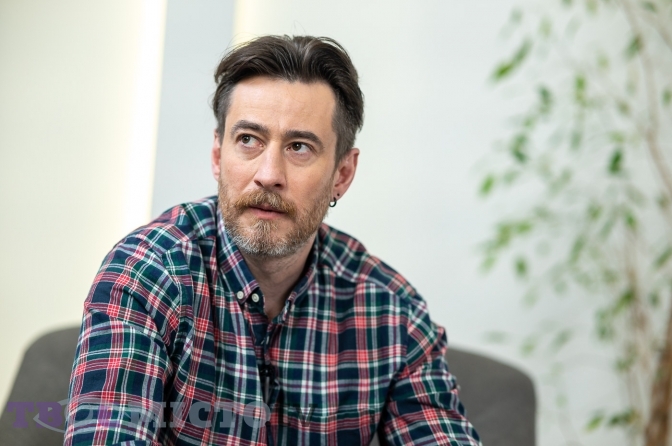
What gives this heredity, this persistence?
It gives strength. As long as you stand firmly on your feet, you understand that you are not the first to appear here and that you have a responsibility not only to those who will come after you but also obvious responsibility to those who came before you. There is an awareness that you are not the first, not the only, not unique, and that you have someone to respect because you came to a place where someone has already done something. You must have a certain respect for those who did it before you. Because if you neglect them, it will mean that it is easy for you to deny weakly anchored in this soil. There are practically no trees that do not grow roots. Otherwise, they do not grow upwards and spread along the ground.
The same French believe they have some affinity with the Gauls, although the name of the country comes from the Franks, which are already Germanic tribes. If you try to understand us, then, in general, it is a layering, where there is always some mythology but at least should be read some traces of the last hundred years. Many things were banned during the time of the Union, the same Valerian Pidmogilny, his first urban novel, the same Bohdan-Ihor Antonych.
These are the 20s and 30s of the 20th century.
To what extent is it now regaining its rights, and does it need the help of some policy at the level of the state or national policy?
I was the first generation to finally start talking about the literature of the Executed Renaissance in the context of the school curriculum in the last years of school. Since then, the situation has changed: the Executed Renaissance include in the school curriculum, it is studied, and books are published. It is not the same deplorable situation as when I was in the 11th grade, and there was nowhere to find books because there were no published ones. There were some binders, reprints, etcetera. The situation improved now. During the 1990s and 2000s, we had to learn a large body of literature that had not been present in Ukrainian culture for some time. Later, we found the link between the outbreak of Ukrainian culture and the fact that there was an enormous amount of aesthetically rich, and we should collect such important material. Epochs in literary criticism and literature usually alternate. Someone has to pay too much homage to all their predecessors and study the classics. There comes a generation that wants to start from this, forget it, and experiment. It is how the literary process, any artistic process, generally works. It’s a constant shaky balance between two opposite moments: honoring what has come before and creating something of your own. In a normal life situation, everything interacts commonly. And when there are social breakdowns and cuts off the oxygen, there is no proper continuity. Then it happens, as in Semenko’s words, «I burn my Kobzar.» And this becomes not an aesthetic declaration but begins to be interpreted else-wise.
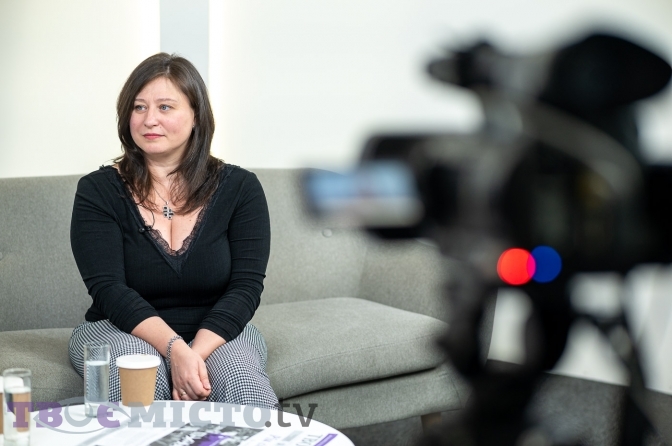
One of the publicists and writers of the turbulent times of the Second World War wrote that perhaps the best works of Ukrainian literature are still ahead of us. We did not have much statehood. We had a short time of this Ukrainianness... I like the idea of Yaroslav Hrytsak, which he voiced in this studio, that, in general, Ukrainianness is a young thing. But it has a vast continuity and rootedness.
I cannot accept this as a media studies scholar.
But 200 years ago, almost no one called themselves Ukrainian.
It was not a matter of name.
That’s right, but we had Danylo Sudyn, an identity researcher from UCU, who said that if we take the Russian identity, which they are also fighting for now, it is purely imperial, it is an artificial construct and if it is stripped of all its layers, there will be no Russian, because there is no ethnicity that is basic to the Russian nation. No language is core and arose within a particular ethnic environment. We are now talking primarily about a political community, not an ethnic one, but what does this mean? In Ukraine, long before 2014, it was enough to have a Ukrainian passport to be called a Ukrainian and to be part of a political nation. If you have a document, you are a Ukrainian. We started issuing Ukrainian IDs and asking the question of whose Crimea is: Is it ours, Russia’s, or Ukraine’s? Now it is no longer enough to say whose Crimea it is. We are constantly adding something to it. Recently, the Verkhovna Rada passed compulsory exams for obtaining Ukrainian citizenship. You need to know history, the Constitution, and the Ukrainian language. It is always some «gentleman’s set.» What, for example, do you need to read from Ukrainian literature will say: «This person understands what it means to be a Ukrainian, what Ukrainian identity is.» Does literature play an important role here?
Literature plays a crucial role. Because it contains all the information about what constitutes this Ukrainianness, stretched over time, and not just here and now, at this particular moment. To answer the question of whose Crimea is or any other additional pressing questions right now.
We understand that this identity is fluid. It changes.
That is why I am not a supporter of the talk about creating a Ukrainian identity right now because I see this situation as permanent. It is concretized constantly being through the situation in which we find ourselves. For example, the identity of a Ukrainian in the 1920s and 1930s was one thing in Greater Ukraine and quite another in Galicia. Creating constructs that come from generalizations is a big mistake. In every period in which Ukrainians existed, there was some self-understanding. They identified themselves somehow. The Ukrainians who lived in these territories in the fifteenth century had some identity. All of these talks about how to create a modern Ukrainian identity in the crucible of this war, which looks like one for which particular issues are becoming the most important... But it did exist. The Ukrainians who lived before that were also not without an identity. They identified themselves with something. It is my objection.
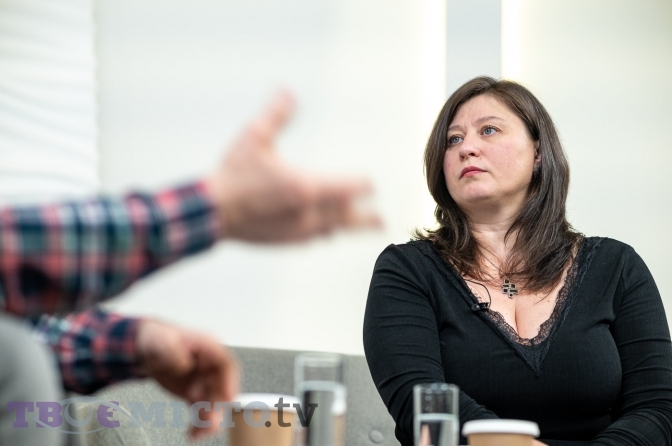
But in this context, literature allows you to talk, write down all these things, have this whole conversation, or observe this identity, because you have written down material. You see how it looked in the eleventh, thirteenth centuries or, accordingly, in the fifteenth, eighteenth, or some other centuries.
I can theoretically imagine myself without, for example, Hulak-Artemovsky. But I cannot imagine myself without Andrukhovych, without his Moskoviada and Recreations. Does this mean that perhaps we should shift the focus? It’s like in history: it’s still very different, different readings. There is the history of the ZUNR[West Ukrainian People’s Republic, a state in 1919]. It is difficult for us to understand why they were thinking for two months until the last minute about whether or not to go to Kyiv to sign that union. And everyone was against it until the Ruthenians rose and said: «No, go! We want the union to happen». And they leave... It is the context, it is hard to explain it now, but it’s necessary. Still, we must have some pantheon of ordinary heroes. And literature should have a pantheon of mutual names.
But it doesn’t exist. Literature is an array. If the massif grows, the understanding is better. I’ll explain it through sociology: you can analyze the opinions of ten people about how they feel about something. Will this sample be representative? Probably not. It’s the same in literature: it’s clear that if we’re talking about a short course that needs to be studied, which consists of several names, I can say that among these names, there will be Shevchenko, Franko, and Lesya Ukrainka. In my version, among these names for me, there will be Pluzhnyk, Skovoroda, Velychkovsky, or someone else. But I cannot foresee all situations. It is my set. And when I talk about it, it will be my vision.
The situation with Andrukhovych and Hulak-Artemovskyi is the same: Andrukhovych already has Hulak-Artemovskyi. As a philologist, he read and studied him in his time. In each subsequent stage, each generation of literature assimilates, accumulates, and digests what came before it in a certain way. And as a result, we get a slightly different interpretation – a more meaningful one. But literature is interesting because it allows you to show every generation. That is, there is no such thing as a slice at the level of Shevchenko, and then suddenly... Each subsequent writer allows us to talk about this section at the level of Kulish. There is Shevchenko’s Ukraine and Kulish’s Ukraine, and they are different. But the more we want to know about this Ukraine, the more often we take these authors and understand them better. So my answer is that the wider the sample, the better the understanding.
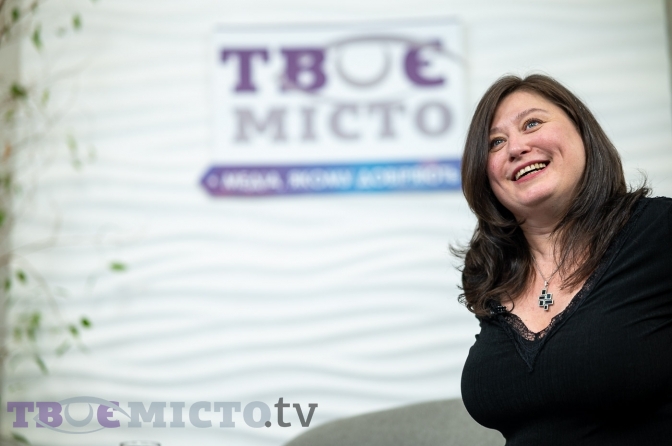
I am interested in this conversation, but perhaps someone will think we are getting into theoretical things. Let’s get back to something more practical. We already mention Shevchenko. This year, there was a whole scandal around the Shevchenko Prize, which still has no resolution and no signed decree... I know Ostap Slyvynsky, one of the former members of the Shevchenko Prize committee that selected this year’s winners, well. Let me remind you. They resigned in protest and withdrew from the committee. It is a difficult situation. How would you comment on it?
I don’t know how I can comment on it. I was neither involved in the committee nor in the people who applied for this award. I believe Ukraine should have an award that emphasizes what we consider significant. And in a way, Shevchenko is the figure used to measure and evaluate something. But I don’t know how to organize this process so that it represents and satisfies everyone and provides some objective version. This issue requires a great deal of understanding and preparatory work. A single wise advice: «Do this, appoint those, let it look like this» can not solve it. There must be a reorganization of the prize, how it should look, and how candidates should be selected if we want it to be modern, legitimate, and essential. These are my general comments. I did not dive deeper into this situation because of the context of the war. It was secondary for me.
But it is good that Taras Shevchenko remains a core, fundamental figure for Ukrainians. If we draw parallels, there is something similar between the Scots and Robert Burns. For the Scots, he is their national hero, and his birthday is almost a day off, on which they always cook some traditional dishes. But it is also a nation that still does not have statehood. Won’t this mean for Ukrainians that once they gain statehood, it will be a normal process, that this Kobzar, the singer of independence, will lose such importance?
First of all, we are no longer in the Scotland situation is in because we have an official language. We have a nation-state. We are not even in the same situation as Ireland is now. Last year I had a chance to be in Ireland and see the picture. I understand that when the local church switched to English, Ireland ceased to be Ireland in the literal sense. But they have English alongside them, which has the function of an international language, and, accordingly. It is difficult to fight for your language in this context. I published a chapbook in English and Irish. And I was surprised by the reaction of the Irish when, at a meeting with me, a senior Irish writer decided to read out one of my poems in Irish from this book. The audience had tears in their eyes. They have this constant painful moment with their language, which exists in a limited environment. When you notice this, you think: «God, it’s a blessing that Ukrainian is not at this stage yet!»
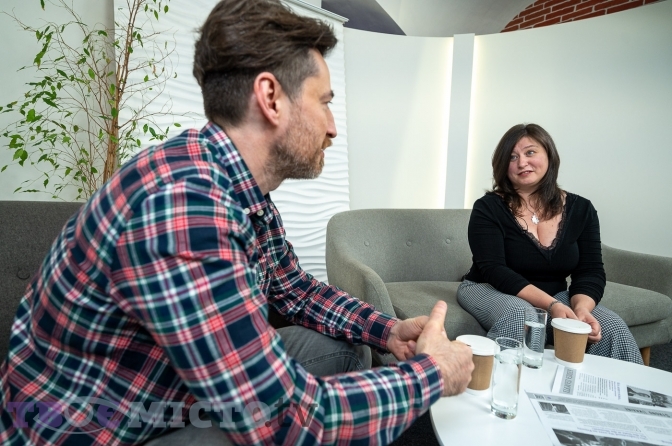
They have Joyce, but he wrote in English.
I believe that language is not just something formally written in a text. Language preserves the worldview, culture, history, and logic of thinking. Language is a kind of iceberg that protrudes only a little bit outside but is all inside. And the point is that when we write in Ukrainian, we are defending Ukrainian. We are talking about the world behind this language, meaning the whole set of ideas about the world that have accumulated in this language. Because the way to form a word and a phrase used in a language is a sign of a specific worldview, it is not that any language is inferior. It is just different. And if I don’t write in Ukrainian, I will write in other languages. I will work in a different culture, for the benefit of a different culture, in honor of a different culture, with the means of a different culture, developing a different culture.
Ukraine gets fighter jets for the first time. Slovakia sent them, which gave us four MiG-29s to the song «Hey, Falcons!» in Slovak. We know, but few of us can confirm, that Slovak or Polish is closer to Ukrainian than Russian. We are deprived of the opportunity to test this on our own experience because Russian seems more understandable from childhood.
I have something to object to here. My second language is not Russian but Polish. Let’s believe the scholars who say Polish is not closer to Ukrainian. Slovak is, but not Polish.
My friends from Zakarpattia ask: «How can you not understand something in Slovak? Is it so similar? But Polish is a difficult language.» And I answer: «How can you not understand Polish?» It also depends on what tune the ear. But I remember when guys from Argentina, who had Ukrainian roots, came to us as an exchange students in the early 1990s. They were initially «exiled» to Odesa and asked to be transferred to Lviv because they did not understand Russian at all – they only knew Ukrainian, Spanish, and English.
It is an illusion. Our everyday or situational bilingualism is illusory. It is not the case throughout the country. I often deal with students and a generation that has grown up and speaks Russian at most the level of everyday phrases. But they do not read deeper or do not fully understand half the words.
On the level of hookah rap.
Yes. It is the same story in some regions with the Ukrainian language, where it seems generally understood. But you have never used it in-depth and will never deal with it as a language of your power in which you can understand and express yourself. In many ways, I see that this illusion of bilingualism is like pulling an owl on a globe. It is not a national situation in Ukraine. We have a much more complicated picture, and if we try to preserve it, we will have a very unhealthy system, which is undesirable for Ukraine now in times of war. It will create many moments of tension at the level of everyday communication, misunderstanding, triggers, and everything else. It is already worth working with this because the war as an issue will sound more acute.
I learned that the song «Hey, Falcons!» is not only Slovenian and Polish but Ukrainian, even Lithuanian and Czech. That is, in each variation of the native language, this song combines a symbolic space.
In the Ukrainian language, it does not exist as a folk song. It is a literary song translated from Polish.
So the first version is Polish? I didn’t know that.
Yes, it is. To what extent this song belongs to works of literary origin and to what expand it represents a certain kind of noble literature is not an easy question. We are not dealing with folklore here. Only later, this song was somehow folklorist and reached the level of mass culture. But it was not originally folk art.
So these old stories will still hold us. We need to reconcile our memory with the Polish memory, but this is an agenda for some further back. I still stick to the good old Khvylovyi maxim «Away from Moscow!» And we will figure it out there if Halyna Kruk doesn’t mind.
I don’t mind in the least. I think slogans alone are usually not enough to take hard small steps. But the direction is essential.
Translated by Yulian Lahun
Follow us on Facebook and Instagram. Lviv Now is an English-language website for Lviv, Ukraine’s «tech-friendly cultural hub.» It is produced by Tvoe Misto («Your City») media-hub, which also hosts regular problem-solving public forums to benefit the city and its people.












